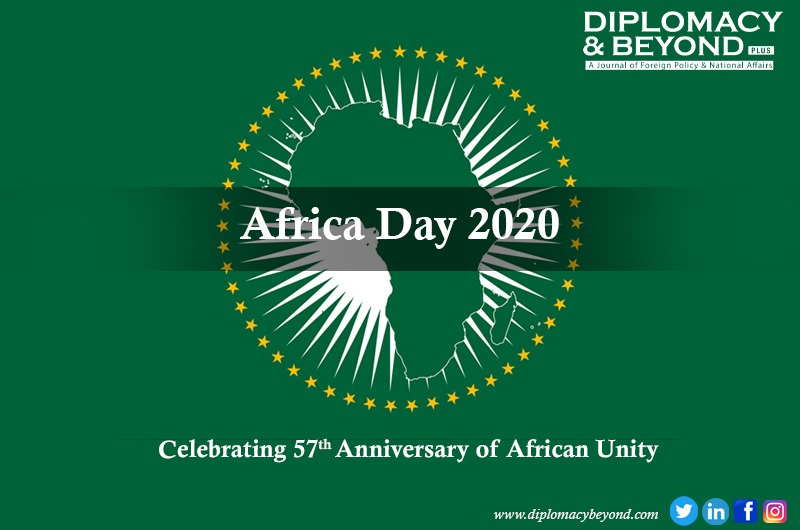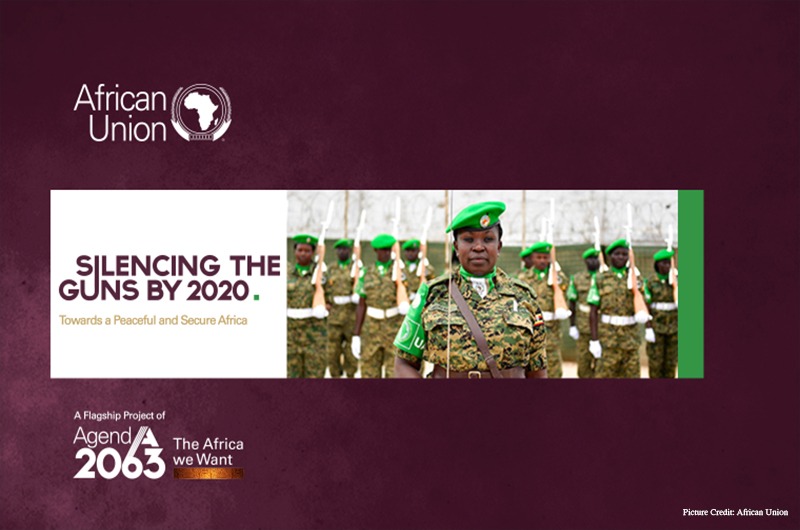On May 25, 1963 the Organization of African Unity (OAU) was formed in Addis Ababa, Ethiopia, hosted by Emperor of Ethiopia Haile Selassie. The OAU was formed in a meeting of over 32 African nations who aimed to influence the decolonization of African countries. Africa Day is a symbol of the quest the OAU held to establish unity in the continent and work towards political and economic emancipation of its people and to improve cooperation among them. The organisation established a charter to improve the livelihood of member states across Africa. The other aims of the organization are to ensure human rights for all African citizens, raise their living standards, and settle arguments and disputes between members. The African Union (AU) is a continental body consisting of the 55 member states. It was officially launched in 2002 as a successor to the Organization of African Unity. This year the organization will be celebrating its 57th anniversary.
Agenda 2063
Agenda 2063 is Africa’s blueprint and master plan for transforming it into the global powerhouse of the future. The African heads of state and government signed the 50th Anniversary Solemn Declaration during the Golden Jubilee celebrations of the establishment of OAU in 2013 with the vision of an integrated, prosperous and peaceful Africa, driven by its own citizens, representing a dynamic force in the international arena. The organization intends to achieve this vision within a 50-year period from 2013-2063. The African Union is in full swing to implement ‘Agenda 2063’ to actualize the African people’s aspirations. One of the aspirations of the Agenda 2063 talks of “an Africa whose development is people-driven, relying on the potential of African People, especially its women, youth and caring for children”.
Common African Unity and Identity
The first conference of Independent African States convened on April 15, 1958, in Ghana encouraged a common African identity of unity and fighting against colonialism. It was convened by the then Prime Minister of Ghana Dr Kwame Nkrumah. The conference was attended by the representatives from Egypt, Ethiopia, Liberia, Libya, Morocco, Sudan, Tunisia, and the Union of the Peoples of Cameroon. It was called for the observance of African Freedom Day once a year on April 15 as African Freedom Day or Africa Liberation Day.
South Africa’s Rise in the African Union
South Africa only became part of the OAU in 1994. Earlier, the ruling apartheid government in South Africa had banned the African National Congress (ANC) from attending OAU meetings due to their anti-apartheid agenda. Thirty eight years after its formation, the OAU evolved into the African Union (AU) on May 25, 2001, where South Africa grabbed the opportunity to be a founding member. South Africa took over as African Union’s Chair in February 2020.
Women Empowerment in the African Union
Nkosazana Clarice Dlamini-Zuma was the first woman Chairperson elected by the African Union Commission in 2012. Upon her taking chair, many argued that the continent was not ready for a woman to take such a position. However, she managed huge achievements during her tenure and cracked that assumption. The example set by her helped pave the way for two more women to apply as candidates to take her position after completion. During her tenure, she made women’s rights the theme of two consecutive AU summits, where the continental body started a major campaign to end child marriage and the results spelled out a significant amount of success.
Continent-wide Disease Control and Prevention
In January 2017 Africa Union launched a continent-wide public health agency – the Africa Centres for Disease Control and Prevention (Africa CDC). It is a specialized technical institution of the AU established to support public health initiatives of Member States and strengthen the capacity of their public health institutions to detect, prevent, control, and respond quickly and effectively to disease threats and respond to public health emergencies. The African Union Assembly of Heads and States authorized annual contributions from the overall operating budget of the AU. They perceived it necessary to safeguard Africa’s health as they could see it taking a toll on national, social, and economic development.
While the coronavirus (COVID-19) pandemic is defining the global health crisis, the Africa CDC has established the Africa Task Force for Novel Coronavirus (AFCOR), to oversee preparedness and response to the global epidemic of the disease. Dr John Nkengasong, Director of Africa CDC, inaugurated the Task Force on February 3, 2020, during a meeting between representatives of the African Union and National Public Health Institutes from African Union Member States. The AU has also created an Africa Union COVID-19 Response Fund to fight against the pandemic impacted on African populations. The fund was established by the Chairperson of the African Union Commission on March 26, 2020.
The people of Africa and friends of the continent are encouraged to contribute to the fund on this Africa Day, May 25, 2020. The target of $1million has been set for the day. This year, the theme for Africa Day is “Silencing the Guns in the context of the COVID19”.
Conclusion
African Union has been working constantly to create prosperity for the continent’s peoples. But Africa’s economies will have to work together. The institutions will have to improve their governance and performance to achieve further goals. There is no shortage of ideas within Africa. The African Union may play a key role in this with more effective implementation. The institution has the previous experience of several reform initiatives. They should focus on key priorities with continental scope.
Disclaimer: The views expressed are of the author(s) and do not reflect the official policy or position of Diplomacy and Beyond Plus. The publication is not liable for the views expressed by authors.










